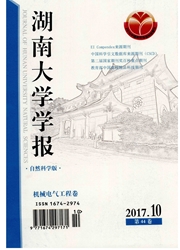

 中文摘要:
中文摘要:
衡量冷凝器运行状况的污垢系数容易受到多种因素的影响,故以污垢系数为基础来判断冷凝器水侧壁管脏污的情况,会产生很大的误差.本文提出清洁度的定义,从而将冷凝器汽侧空气量、水管壁的污垢程度、冷凝器管束布置系数等因素对凝汽器总体传热系数的影响分离开来,能够更准确地诊断凝汽器的污垢程度,为凝汽器的合理清洗提供依据.实验数据表明,当冷凝器的运行出现以下变化如冷凝管堵塞、自动清洗装置停运、空气漏入量较大时,清洁度能够取得比T-S模型、热阻法、RBF神经网络更精确的测量结果,对冷凝器的高效运行具有重要的工程意义.
 英文摘要:
英文摘要:
Fouling coefficient is an important measure parameter of condenser performance,but it is affected by multi-factors,therefore judging the condenser water side of tube walls fouling based on coefficient would have a significant error.So this paper proposed the concept of degree of cleanliness,which allows us to analyze the influence of the air accumulated on the steam side、the fouling on condenser water side of tube walls、and the tube bundle coefficient of condenser on the overall heat transfer coefficient of the condenser respectively.It can diagnose the condenser fouling more accurately and provide a basis for scheduling reasonable cleaning.Experimental results show the method can be more reliable than the T-S fuzzy model,thermal resistance method,RBF neural network model when the condenser pipe blockage or a larger amount of air leakage into the condenser or condenser operating mode parameters change rapidly.
 同期刊论文项目
同期刊论文项目
 同项目期刊论文
同项目期刊论文
 Environmental/economic power dispatch problem using multi-objective differential evolution algorithm
Environmental/economic power dispatch problem using multi-objective differential evolution algorithm Intelligent Foreign Particle Inspection Machine for Injection Liquid Examination Based on Modified P
Intelligent Foreign Particle Inspection Machine for Injection Liquid Examination Based on Modified P Existence and exponential stability of almost periodic solution for shunting inhibitory cellular neu
Existence and exponential stability of almost periodic solution for shunting inhibitory cellular neu 期刊信息
期刊信息
